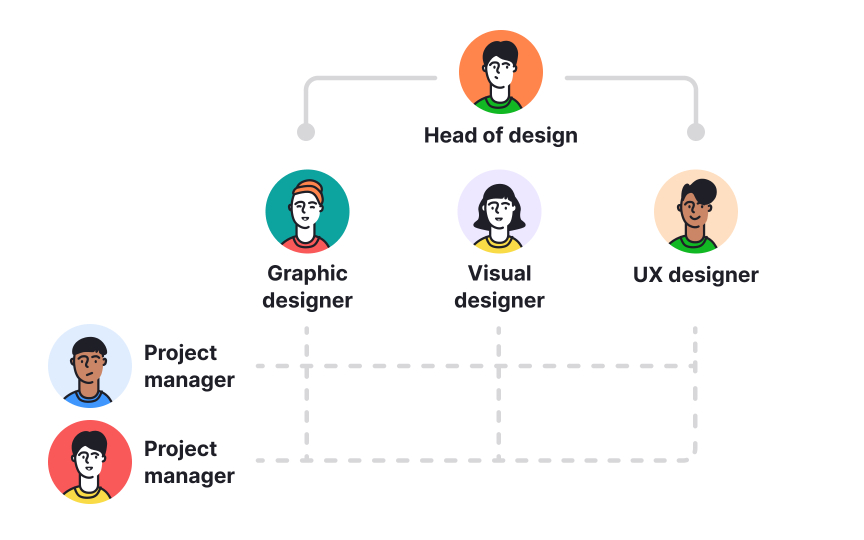Flexible (matrix) teams
Flexible or matrix teams allow team members to retain their specialized expertise within their functional areas while also engaging in collaboration across different projects. Imagine a graphic designer who's part of the design department but simultaneously works with a marketing project team to create compelling advertising materials.
Matrix teams are great because they encourage expertise and teamwork. Everyone contributes their skills and works with people from other departments to reach common goals. This helps with learning and innovation. These teams are also good for communication because they need regular engagement and sharing of information, which helps projects move forward and succeed.
On the flipside, matrix teams can introduce complexity and potential conflicts due to multiple reporting lines and overlapping responsibilities. Decision-making may become more intricate, and establishing clear accountability can be challenging.


